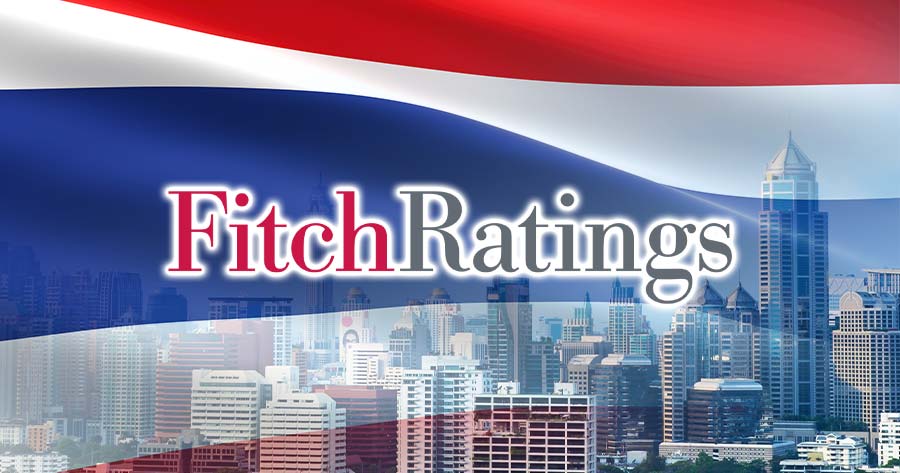Fitch Ratings has revised Thailand’s Long-Term Foreign-Currency Issuer Default Rating (IDR) Outlook to Negative from Stable, while affirming the rating at ‘BBB+’. The move reflects rising fiscal risks amid heightened political uncertainty and slowing economic growth.
The affirmation at ‘BBB+’ is supported by Thailand’s strong external finances and relatively good track record without a restructuring of public debt, resulting in a positive impact on the credit profile. Interest costs are estimated at just 5.7% of government revenue, compared with peers’ median of 9.2%. The country also maintains a large net external asset position of 47% of GDP, far above the ‘BBB’ category median of -2%.
Fitch said political risks have intensified after the Constitutional Court removed Prime Minister Paetongtarn Shinawatra earlier this month. A minority government led by Bhumjaithai Party leader Anutin Charnvirakul has pledged new elections within four months, adding to near-term policy and spending uncertainty.
Fiscal buffers have eroded, with gross general government debt climbing to 59.4% of GDP in August, close to the ‘BBB’ peer median, and up sharply from pre-pandemic levels. Fitch expects deficits of 4.6% of GDP in FY25 and 4.3% in FY26, warning that consolidation prospects remain unclear until after elections.
The agency projects GDP growth of 2.2% in 2025 and 1.9% in 2026, well below the ‘BBB’ median, citing weak exports, sluggish domestic demand, and a slower-than-expected tourism recovery. Tourist arrivals reached 21.9 million in Jan–Aug 2025, still far short of the 2019 record of 39.9 million.
Headline CPI fell -0.8% y/y in August, giving the Bank of Thailand room to ease further after cutting rates to 1.5% last month. Fitch expects two more 25bp cuts by 2026.
Fitch warned that a downgrade could follow if debt stabilization prospects weaken or if political disruption severely hits tourism. The Outlook could return to Stable if fiscal consolidation and growth prospects improve.
In addition, the outlook downgrade from Fitch Ratings came after the revision of Moody’s in April that changed its Outlook to “Negative” from “Stable,” citing the uncertainty regarding the U.S. trade tariffs that could dent Thai exports in the near term. Meanwhile, the agency also affirmed Thailand’s Sovereign Credit Rating at Baa1.
Credit Outlook:
The credit outlook serves as an indicator of the potential direction a country’s rating may take in the next six to twelve months at a minimum. Should prevailing uncertainties persist or if developments unfold in line with the agency’s concerns, it could eventually result in a downgrade of the sovereign credit rating. However, a rating agency’s outlook is subject to change at any time, depending on the progression of the country’s circumstances.





